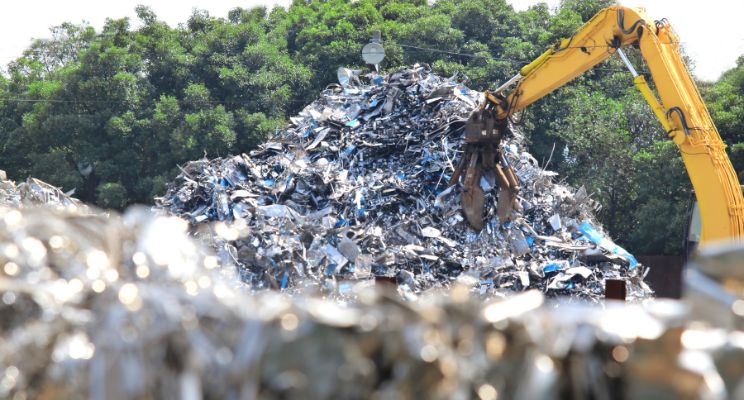Every year, the industrial sector generates more than 7.6 billion tonnes of waste worldwide reason being Industrial waste disposal is often more complex and dangerous, it costs more than $9 trillion every year to recycle all the industrial waste. Failure to address this issue can result in environmental harm.
What Is Industrial Waste?
Any product generated by industrial operations that is undesirable, dangerous, residual, or leftover from the manufacturing process is considered industrial waste. These consist of secondary, toxic/chemical, and solid waste. But, solid waste represents the most significant volume of industrial waste.
Industries have a lot of imbalances because businesses see recycling as another expenditure to include in operational expenses, which creates a significant disincentive to employing this technique. But, some emerging technologies such as the Internet of Things (IoT) have proven their ability to optimize waste by reducing the overall production of waste in the first place.

Why IoT for waste management?
There is a wide range of answers to waste management issues. However, the advantage of IoT is the ability to gather massive amounts of data and update it in real-time based on input from a wide array of cost-effective distributed sensors. These low-cost sensors and recording & monitoring systems transmit all of their data to the cloud for storage and analysis. The data may then be analyzed by AI algorithms to give valuable insights.
Smart Waste Solutions for the Food
Every year, over 1.3 billion tonnes of food are wasted in the food manufacturing and sale process. The truly surprising fact is that this waste accounts for approximately 33% of all food produced for human use. Because of landfill sites for garbage disposal, improperly handled food and food waste often end up in these sites. This process implies expensive pickup routes and further carbon emissions.
This unnecessary waste represents an inefficient use of fees, budgets, landfill taxes, and other costs. As a result, many businesses have started to use IoT technology by combining software, GPS systems, user portals, and distributed smart sensors. They may decrease and streamline their waste collection and storage systems using this strategy. This allows an organization to make better decisions about scheduling pickups and optimize truck pick-up routes.
Agricultural Smart Waste Solutions
A total of 998 million tonnes of agricultural waste is produced every year. This is unusual in agriculture because nearly every agricultural activity, from planting to bagging, generates by-products. The other point distinct to the agro-waste scenario is the type of waste. These can include hazardous agricultural waste, ordinary animal waste, crop waste, and food waste.
The most concerning form of agricultural waste is the possible contamination of groundwater with pesticides that come in use to protect crops from dangerous insects and rodents. Other types of waste produced by millers, packagers, and transporters magnify this problem.
IoT in farming plays a critical role in addressing these problems by helping to promote proper waste disposal and reduce the generation of waste in the first place. IoT can assist in tracking each step of the growth cycle. As it can determine the right quantity of fertilizer and pesticide to use at the right time so that there is minimal run-off. This results in increased efficiency, lower costs, and less environmental impact.
Smart Waste Solutions in the Energy Industry
Energy organizations may manage waste segregation with up to 99% accuracy, lower their carbon emissions, improve workplace safety and cleanliness, cut waste collection expenses, and optimize waste management and collection procedures with the help of IoT.
Mishandling industrial waste can have catastrophic consequences for the environment and human and animal life. From a purely pragmatic business standpoint, this waste mismanagement can also lead to lost revenue, fines, and even more severe legal ramifications. Fortunately, Wastech India provides the ideal solution for such businesses in the shape of EPR service. An eco-friendly waste management solution that removes waste from landfills and waterways. Wastech’s EPR service involves assisting with waste collection, segregation, transportation, and disposal in rural areas across India. Wastech has successfully disposed of over 10,000 million tonnes of waste from various states using this service, and the number is growing.
